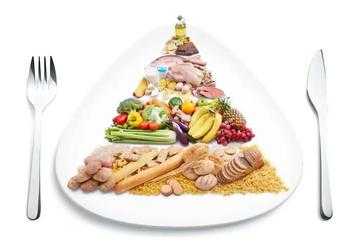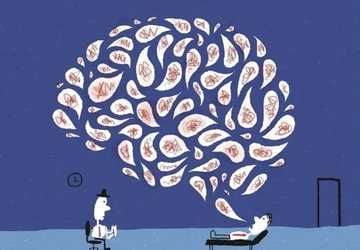How a Balanced Diet Can Protect You from Chronic Diseases?

As the saying goes, "You are what you eat". But have you ever stopped to ponder the deeper implications of this statement?
What you put on your plate doesn’t just satisfy your cravings – it also has a profound impact on your health, both physical and mental.
In today’s world, where convenience often takes precedence over quality, we are inundated with unhealthy dietary choices.
These choices, when made frequently, can take a heavy toll on our bodies and minds, leading to a heightened risk of chronic diseases, such as diabetes, heart disease, and obesity, to name a few.
To help you improve your diet, we’ve written this insightful blog post. This isn't just about healthy eating; it’s about transforming your relationship with food and understanding how it affects your well-being.
We will walk you through the realities of a poor diet, elucidate the intricate links between what we consume and the state of our health, and provide a roadmap to improve your dietary habits.
So grab a cup of green tea, settle in, and let’s embark on a journey towards better health and well-being through the power of balanced eating.
Chronic Diseases Linked to Unhealthy Eating
Imagine your body as a high-performance car. It runs smoothly and efficiently, but only when fueled with the right type of petrol. In the same way, every nutrient we feed our body has a unique role, each one critical to the functioning of different organs.
What happens when we make the wrong food choices? Well, often we end up feeding our bodies empty calories loaded with sugar and refined content - hardly the fuel our bodies crave.
Those who persistently opt for unhealthy foods aren't just messing up their meal times; they're opening the floodgates to a multitude of health issues. From minor health nuisances to severe medical complications, poor eating habits can indeed set off a domino effect of health problems.
Let's unravel the mysteries of the health woes that prolonged unhealthy eating can usher into your life.
The Weighty Issue of Obesity and Overweight
Can you believe that 1 in 6 children aged 2 to 19 in the U.S. are dealing with the burden of being overweight? This may seem like just a number, but it's a reality with serious implications.
Obesity, particularly in our young ones, increases their susceptibility to heart disease, type 2 diabetes, and certain types of cancer. The good news? A balanced diet, combined with regular exercise and adequate sleep, can help our children develop healthily and keep obesity at bay.
It's more than just about fitting into the right clothes, it's about paving the way for a future that's free from these health complications.
Strike Out Stroke and Heart Conditions
If heart disease and stroke were to have two arch-nemeses, it would be high blood pressure and high cholesterol. Alarmingly, our love for high salt diets is pushing our blood pressure into the danger zone, escalating the risk of heart attacks and strokes.
Just imagine this - while it's recommended to consume less than 2,300 mg of salt daily, the average American consumes over 3,400 mg each day.
Packaged foods, processed bites, and cafeteria items - these are the silent sodium-contributors in our diet.
The antidote? Opt for a diet rich in fiber, low in fats, limit your sodium intake, and keep moving. It's not just about adding years to your life, but life to your years.

The Sweet Danger of Type 2 Diabetes
Obesity is not just about a burgeoning waistline; it's a potent trigger for Type 2 diabetes.
When our bodies grow heavier, they also grow less effective at utilizing insulin, which can pave the way for this chronic disease.
It's a silent epidemic in the U.S., where more than one in three adults, that's about 96 million people, have prediabetes, and the scary part is, eight out of ten are unaware of their condition.
Despite a slight dip in new cases, diabetes has doubled over the past two decades due to aging and rising obesity levels. It's about time we faced this sweet danger head-on, by monitoring our weight and making smarter food choices.
The Unseen Connection between Diet and Cancer
Certain cancers have a secret accomplice - an unhealthy diet. How does this work? Unhealthy eating can lead to weight gain and obesity, which in turn raise the risk of at least 13 different types of cancer such as endometrial cancer, breast cancer in postmenopausal women, and colorectal cancer.
Foods and drinks that are high in sugar and heavily processed can contribute to weight gain and increase cancer risk. Red and processed meats are also linked to a higher risk of colorectal cancer.
As we make our way through the grocery aisles, it's important to remember that our food choices can literally mean the difference between life and disease.
How Eating Healthy Can Save You from Chronic Diseases?
Wondered how your food choices could help stave off grave illnesses like heart disease, stroke, diabetes, or osteoporosis?
Let's delve into this as we discuss five chronic diseases that you can keep at bay simply through healthy eating.
1. Busting Obesity with Balanced Eating
Think of obesity as a shadowy figure, silently pulling the strings behind a slew of diseases - from type 2 diabetes and osteoporosis to stroke and heart disease. When we fill up on calorie-dense, fatty, sugary foods, we're not just piling on pounds - we're potentially harming our bones and stressing our vital organs.
But here's the good news: When we opt for wholesome, nutritious foods, we naturally maintain a healthy weight, thereby keeping excess fats at bay. It's not merely about vanity but about nurturing our bodies from within.
So, why not make a pact with ourselves to sideline junk food and say hello to a healthier, fitter us?
Our bodies are like finely-tuned machines, each part requiring specific fuel to function optimally. For example, skimp on calcium and your bones could weaken, making you a prime candidate for osteoporosis.
Likewise, indulging in saturated fats can lead to high cholesterol and blood pressure, creating a straight path towards cardiovascular disease.
But don't despair! By embracing a diet brimming with the right nutrients, we can dodge these health bullets.
3. Fuel for Mood and Motivation
Ever noticed how being in a good mood can inspire you to move more? It's a well-known fact that the right foods can uplift your spirits, making you more likely to get up and get moving - a crucial component of disease prevention.
And here's another bonus - a balanced diet boosts your "good" cholesterol while trimming down harmful triglycerides. This results in smooth blood flow, keeping threats like heart disease, stroke, diabetes, and high blood pressure at bay.
4. Building Strong Teeth and Bones
As we age, our bones can lose their strength, leading to conditions like osteoporosis. But did you know that a diet rich in calcium can help preserve your bone and tooth strength?
Sure, dairy products are synonymous with calcium, but there are other sources too, such as canned salmon with bones, pilchards, or sardines.
You could also load up on dark green veggies like kale and broccoli or opt for fortified cereals, soy products, and fruit juices.
5. Heart Health – A Diet's Main Priority
A heart-friendly diet, packed with fruits, vegetables, whole grains, and low-fat dairy, is your ticket to curbing blood pressure and cholesterol levels, thereby reducing your chances of developing heart disease.
On the other hand, a diet high in salt and saturated fats can put you on the fast track towards high blood pressure and cholesterol.
So how about adding a weekly dose of oily fish like salmon or trout to your meals? These fish are teeming with heart-boosting omega-3 fatty acids. Now, doesn't that sound like a delicious way to keep your heart in good shape?
As we wrap up this enriching exploration of food and health, let's pause to reflect on the weighty truth we've uncovered: Your diet is a pivotal player in your health's grand scheme.
Remember, every bite you take isn't just about satisfying your taste buds; it's an opportunity to either fuel your body with health-promoting nutrients or burden it with disease-inviting toxins.
When we frequently opt for foods high in sugar, fat, and calories, we inadvertently expose our bodies to a barrage of health issues.
But hope is never off the table. Simple, wholesome, and nutrient-dense foods can indeed help us dodge these health predicaments.
So, let's redefine our relationship with food and wield it as our potent weapon against chronic diseases.
To good health and wise food choices, cheers!







